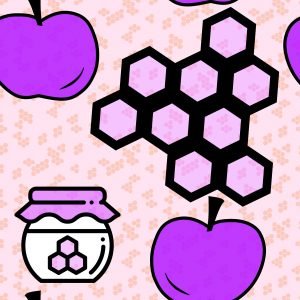Inclusion of Food-Based Therapies In Medical Treatments
Medical nutrition experts are saying that physicians today have revived the traditional practice of prescribing foods to take and to avoid as part of treatments. This piece of information brings to mind India’s traditional Ayurvedic medical practice, which recommends different food-based treatments for different types of diseases.
According to an article published by CNN, a growing number of Western doctors are now conscientiously prescribing foods with medical value for illness-prevention in addition to medicine prescriptions for the treatment of chronic ailments. A CNN correspondent spoke with physician nutrition specialist Dr. Melina Jampolis, who said that a certain food can be a treatment for a particular ailment but we should also take note that a single food item does not always work on its own.
A CNN correspondent spoke with physician nutrition specialist Dr. Melina Jampolis, who said that a certain food can be a treatment for a particular ailment but we should also take note that a single food item does not always work on its own.
Food-based treatments have been well-established as having consistent results based on Ayurveda medical guidelines. Ayurveda by the way is India’s traditional medical science, which contains a wealth of information about traditional foods and dietary guidelines for addressing diseases. Ayurveda’s health sciences consider the condition of the entire human body as the result of food consumption. A disease is actually an imbalance of mind, body and spirit that requires regulation and/or correction of diet.
Examples of Ayurveda Food Therapies
Similar to Western concepts of health and well being, Ayurvedic science also promotes maintaining a healthy diet in order to stay healthy. Ayurveda explains that the body absorbs the nutrients after the process of digestion converts food into plasma. The nutrients are carried into the bloodstream by the plasma, followed by a series of subsequent conversions into blood, bone marrow, body fluids, muscles, fat and reproductive elements.  In case of imbalances, Ayurvedic medical science recommends a specific therapy for a particular disorder. The following are examples of such food therapies:
In case of imbalances, Ayurvedic medical science recommends a specific therapy for a particular disorder. The following are examples of such food therapies:
Shodhana – This therapy is a treatment involving a purification process of eliminating food-derived toxic elements.
Nidan Parivarjan – This treatment is mainly preventive in nature as the therapy is about avoiding the causative factors of a disease such as overeating, eating heavy food that takes time to digest, consuming sweet food in amounts that spike up blood sugar levels, meat and other greasy or oily food, which are common dietary factors that result to excessive weight leading to obesity.
Rasayana – The goal of this Ayurvedic therapy is to restore or to enhance the body’s immunity system through food nutrition, especially after receiving medicine-based treatment.
About India’s Medical System of Prescribing Medications
When it comes to prescribing medications, India’s medical system bars physicians from prescribing branded medications. After all, India is the largest producer of generic medicines on a global scale. Market reports show that the country’s pharmaceutical industry supplies more than 40% of the US’ demand for generic medicines. Locally, the distribution and sale of generic medicines across the country runs through a pharma franchise system called Propagand-Cum-Distribution or PCD pharma franchise to ensure the availability and affordability of generic medicines in all parts of the country.
In 2017, Prime Minister Narendra Modi enacted a law that makes it mandatory for doctors in India to prescribe only generic drugs. Otherwise, any physician found in violation of the guidelines will be subject to disciplinary actions that include suspension and termination of license to practice medical profession.



